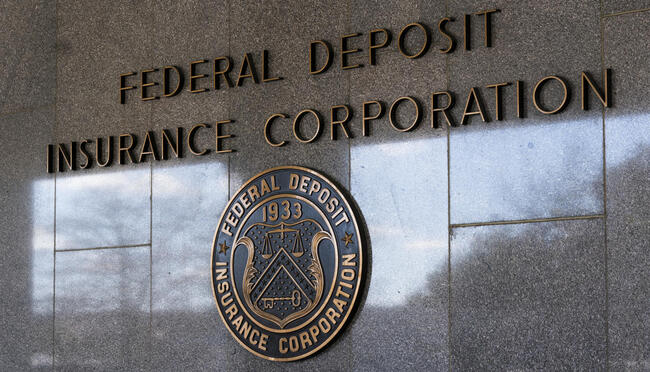Highlights:
- Coinbase says the FDIC used broad exemptions to block crypto documents despite four court orders demanding disclosure.
- FDIC limited its search to internal records and missed key files tied to crypto access, according to Coinbase filings.
- Coinbase wants sworn testimony and full release of FOIA denials from 2020 to 2024 related to crypto banking documents.
Coinbase has intensified its legal efforts against the Federal Deposit Insurance Corporation by filing a motion for further discovery. The crypto exchange submitted the motion alongside an opposition brief to stop the dismissal of its Freedom of Information Act lawsuit. The core of the case lies in the documents that Coinbase asserts are still not disclosed by the FDIC despite court rulings.
Paul Grewal, the Chief Legal Officer of Coinbase, accused the FDIC in a public statement of obstructing access to the required records. He pointed out that the agency is determined to reject attempts to trace any activities against the crypto industry.
📢Coinbase Chief Legal Officer: FDIC Still Trying to Block Public Crypto Banking Charter Applicationhttps://t.co/VErsClo8ip News, Coinbase's Chief Legal Officer Paul Grewal announced a court motion against the FDIC for blocking document disclosure on "Operation C.0." Despite…
— Mlion Crypto News (@MlionNews) August 1, 2025
The FDIC has already been ordered to provide the documents in several court cases. However, Coinbase claims that the agency has been slow and has restricted its responses. The company feels that the withheld information might reveal unofficial initiatives that motivated banks not to cooperate with crypto companies.
Coinbase Accuses FDIC of Withholding Key Documents
Coinbase said the FDIC was using blanket exemptions to prevent access to documents without going through due legal channels. The exchange claimed that the agency did not conduct a document-by-document review as required by the law in FOIA cases. Rather, it automatically labeled sets of records as being confidential without undergoing individual testing. Coinbase said that this strategy was a delay of transparency and a disregard for the court orders.
The filings show that it took the FDIC four court orders and six separate document productions to release only a portion of the materials. Coinbase argued that the delays demonstrate an intention by the agency to withhold critical information. Internal policies discovered during the process reveal that the FDIC had told its staff to fully withhold any document falling under FOIA Exemption 8. The exemption covers bank examination records.
Coinbase has petitioned the court to compel sworn testimony of FDIC officials concerned with the processing of FOIA requests. Coinbase also wants the FDIC to release all denial letters it sent between 2020 and 2024. The letters may prove that the agency launched a wider campaign to block access to crypto-related communications by the general population. According to Coinbase, this kind of discovery is required to learn about the internal practices of the agency. The discovery will ensure the FDIC follows transparency laws.
Narrow Document Searches Raise More Legal Questions
Coinbase argued that the search made by the FDIC was too narrow since it only examined the records it shared with its Office of Inspector General. The report by the OIG, however, made reference to a wider number of documents called pause letters. Coinbase accused the agency of narrow focus. The narrow focus made it overlook important files that should have been produced.
During an FDIC court hearing in January, agency officials also acknowledged that they lack a litigation hold policy with respect to FOIA requests. The absence of a formal procedure led to greater questions surrounding how the agency processes records when legal disputes arise. Meanwhile, the Trump administration is taking a different approach to crypto. While launching “Project Crypto, Paul Atkins took a hit at former SEC officials regarding Operation Chokepoint 2.0 and SAB 121.
2/Atkins confirmed support for tokenization of stocks, bonds, and other assets and promised relief for firms seeking to issue tokenized securities in the U.S.
The speech also hit back at prior SEC actions including Operation Chokepoint 2.0 and SAB 121, which he named as…
— Eleanor Terrett (@EleanorTerrett) July 31, 2025
Best Crypto Exchange
- Over 90 top cryptos to trade
- Regulated by top-tier entities
- User-friendly trading app
- 30+ million users
eToro is a multi-asset investment platform. The value of your investments may go up or down. Your capital is at risk. Don’t invest unless you’re prepared to lose all the money you invest. This is a high-risk investment, and you should not expect to be protected if something goes wrong.






